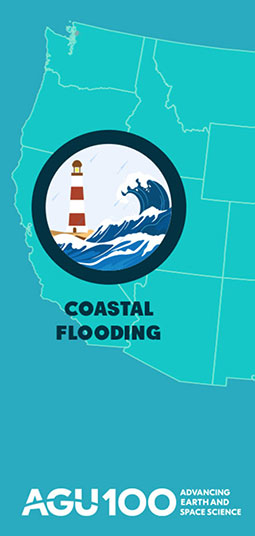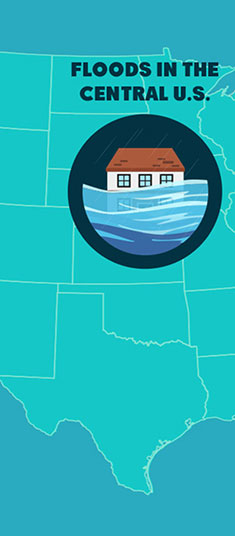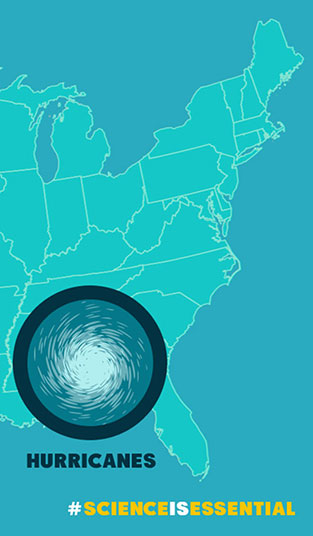Surging Waters: Science Empowering Communities in the Face of Flooding
From devastating monsoons to sea level rise, extreme weather is taking its toll across the globe. Surging Waters looks at flooding in the United States and demonstrates how science is supporting flood management, as well as furthering the solutions needed to mitigate flood impacts on people and property in the future.
The report’s authors highlight three types of flooding—flooding due to hurricanes, flooding in the central U.S., and coastal flooding—through local stories. In 2017, Houston, Texas, was hit by Hurricane Harvey, the second most damaging weather disaster in U.S. history, and is still recovering. The city of De Soto, Mo., is emblematic of many areas in the Midwest that have been plagued by recurrent flash flooding. The Hampton Roads area of coastal Virginia has fallen victim to sinking land and rising seas.
Click on the icons in the map above to read these stories and learn more about each specific type of flooding.
Through these stories and others, and compelling flood data presented for regions across the United States, the report shows how scientific research and data collection are essential to finding modern-day and future solutions to mitigate flooding. Robust funding for science-related federal agencies drives the advancement of science and provides support that is critical for the most vulnerable communities and individuals.
Surging Waters, produced by AGU, a global not-for-profit scientific society dedicated to advancing the Earth and space sciences for the benefit of humanity, recommends actions to build a more resilient and sustainable society. Reviewed by leading experts on the issues of flooding and extreme weather, this report aims to empower community members and leaders, scientists, federal agencies, and policymakers to work together to establish a stronger future for us all.
Read the recommendations from Surging Waters.
Read the full report. Lee la versión en español, Marejada En Crecida, aquí



